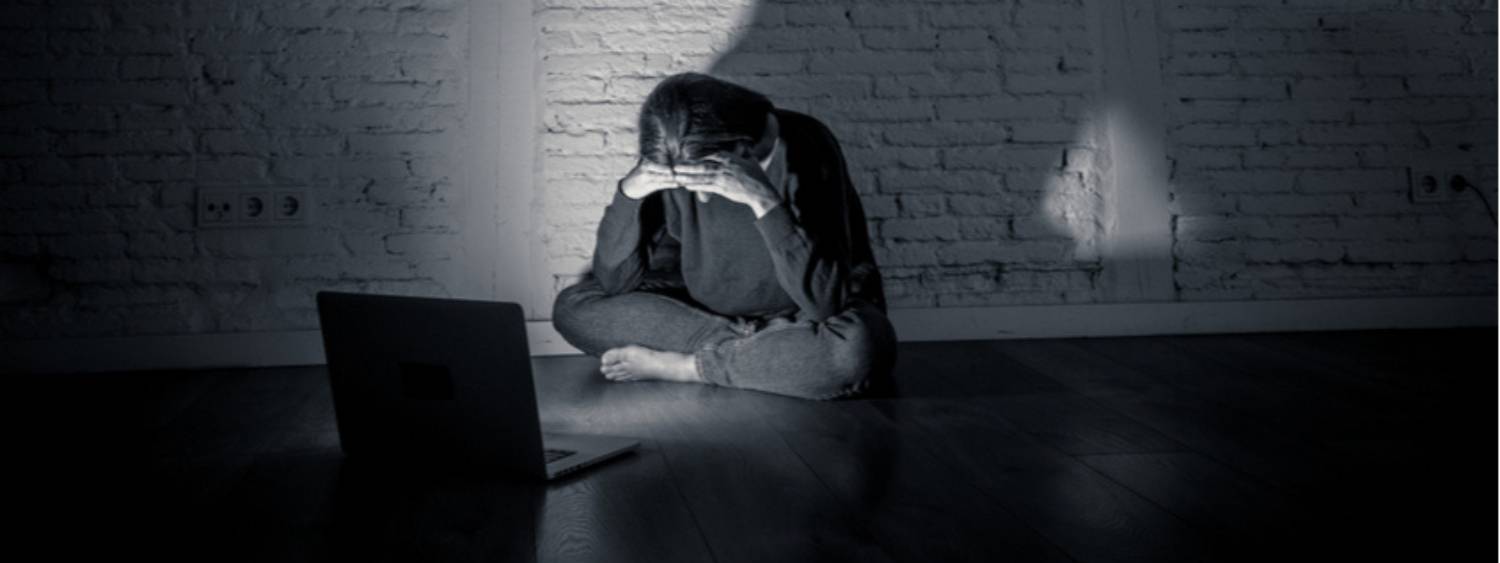 Lord Bishop of Oxford calls for the UK to become the first place in the world where it is safe to be online.
Lord Bishop of Oxford calls for the UK to become the first place in the world where it is safe to be online.
How humanity learns to live with the power of new technologies will be one of the defining moral questions of the 21st Century, says the Lord Bishop of Oxford. The Online Safety Bill has the potential to become world-changing legislation… but only if we are bold and transcend party politics.
“The values of our whole society are continually being undermined by unregulated novel technologies; threatening democratic rights and freedoms in the present and the future,” says the Rt Revd Dr Steven Croft, Lord Bishop of Oxford in his submission to the Draft Online Safety Bill Joint Select Committee.
Society has acquiesced in giving children unrestricted access to a wide range of harmful material online. Technology companies are ‘immature in their understanding of themselves, the power they wield and the danger to society their technology presents,’ says Bishop Croft. “It is clear that they do not have the will or capacity to self-regulate now, or in the future, nor is it in their commercial interest to do so.”
Yet the evidence to the Committee has demonstrated beyond doubt that severe harm is being caused through unregulated technology and social media to children and young people, to minorities on the grounds of ethnicity, gender, or religion, and to those in public life. The mental health effects of social media use over just the last nine years will be felt for a generation to come:
“A tidal wave of harm is building and, if unchecked, it will cause untold damage across society in the coming years.”
Online harms are not accidental or incidental, let alone unavoidable:
“They are directly related to specific business models and the active creation of algorithms that propagate and magnify harmful material to boost profit. Business must be accountable for real but additional harms to the whole of society where these arise because of the way an algorithm has been crafted and deployed.”
Nowhere in the world can it be said to be safe to go online at present. No government has yet been successful in regulating technology firms. Our Parliament has the opportunity to draw a line in the sand, says Bishop Croft. He calls for bold and radical legislation to make the UK the first place in the world where it is safe to be online:
“To reach this goal does not require a fresh set of ethics, values or standards. We simply need to take the ethics, values, standards and the vision of a good society that apply in the offline world, which are the basis of our laws, freedoms and democracy and apply them through regulation, laws and standards to the online world.”
11 November 2021
Notes for editors:
Bishop Steven Croft is available for interview. Contact Steven Buckley on 07824 906839 or Madeleine Hayden on 07880 716761 to arrange.
- The Rt Revd Dr Steven Croft, Lord Bishop of Oxford is a member of the APPG on Artificial Intelligence; a member of the House of Lords Select Committee on Artificial Intelligence (2017-18); a founding Board Member of the government’s Centre for Data Ethics and Innovation (CDEI) from 2018 to May 2021.
- Bishop Steven is currently a member of the Lords Select Committee on the Environment and Climate Change and lead for the Lords Spiritual on climate and on new technology.
- Bishop Steven currently serves as a member of the Ada Lovelace Institute Reimagining Data Project which is looking at global models for regulation.
- The Diocese of Oxford is one of the largest in the Church of England: a network of more than a thousand churches, chaplaincies, and schools across the three counties of Oxfordshire, Berkshire, and Buckinghamshire. The diocese is responsible for the education of more than 50,000 children in 284 primary and secondary church schools.
- Bishop Steven has a long-standing concern for the mental health of children and young people. The diocese is working to provide chaplaincy support to schools and resources for good self-care, most recently launching ‘Space Makers’ a series of classroom mindfulness practices based on ancient Ignatian contemplative exercises.
Submission to the Draft Online Safety Bill Joint Select Committee
In his submission, Bishop Croft appeals to the Scrutiny Committee to take every opportunity possible to strengthen the legislation, and in particular across seven areas of legislation:
- Assert the need for a single overarching duty of care.
- Ensure the provision of robust and adequate age verification.
- Ensure that harms to society are expressly included in scope.
- Powers to scrutinise companies use of algorithms – and their effects on users.
- Strengthened provisions for director liability.
- Ensure the powers of the Secretary of State are redrawn.
- Offer the government guidance on dovetailing (addressing complex questions about what particular harms should be incorporated and what should remain out of scope of this specific bill).
The Lord Bishop of Oxford’s Submission to the Draft Online Safety Bill Joint Select Committee can be read here.
